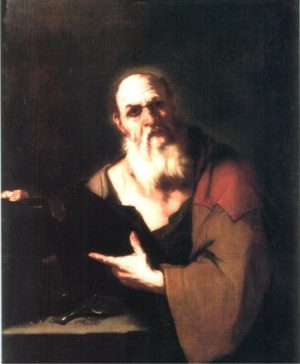Notes on the Purpose of Poetry
Two weks ago we and Socrates met with Ion, a rhapsode and Homer’s greatest interpreter (in his own opinion). One question we touched on was whether poetry and rhapsody are arts, to which Socrates answered “No.” Rather, it’s a form of divine inspiration, which definition Ion was happy to roll with. However, that doesn’t seem to be true, for there certainly is an element of craftsmanship and skill involved with writing and reciting poetry, despite the occasional one-hit-wonder. Furthermore, even individual works, especially long ones like epics, are of mixed quality or at least mixed goodness. The Iliad, for instance, is a work of immense skill throughout, but at times portrays the gods in an impious manner, which seems very odd if it’s the work of inspiration by the gods. (As an aside, I am aware that all this isn’t Socrates final opinion on the subject, and that at least some of what he had to say was essentially said for Ion’s sake).
